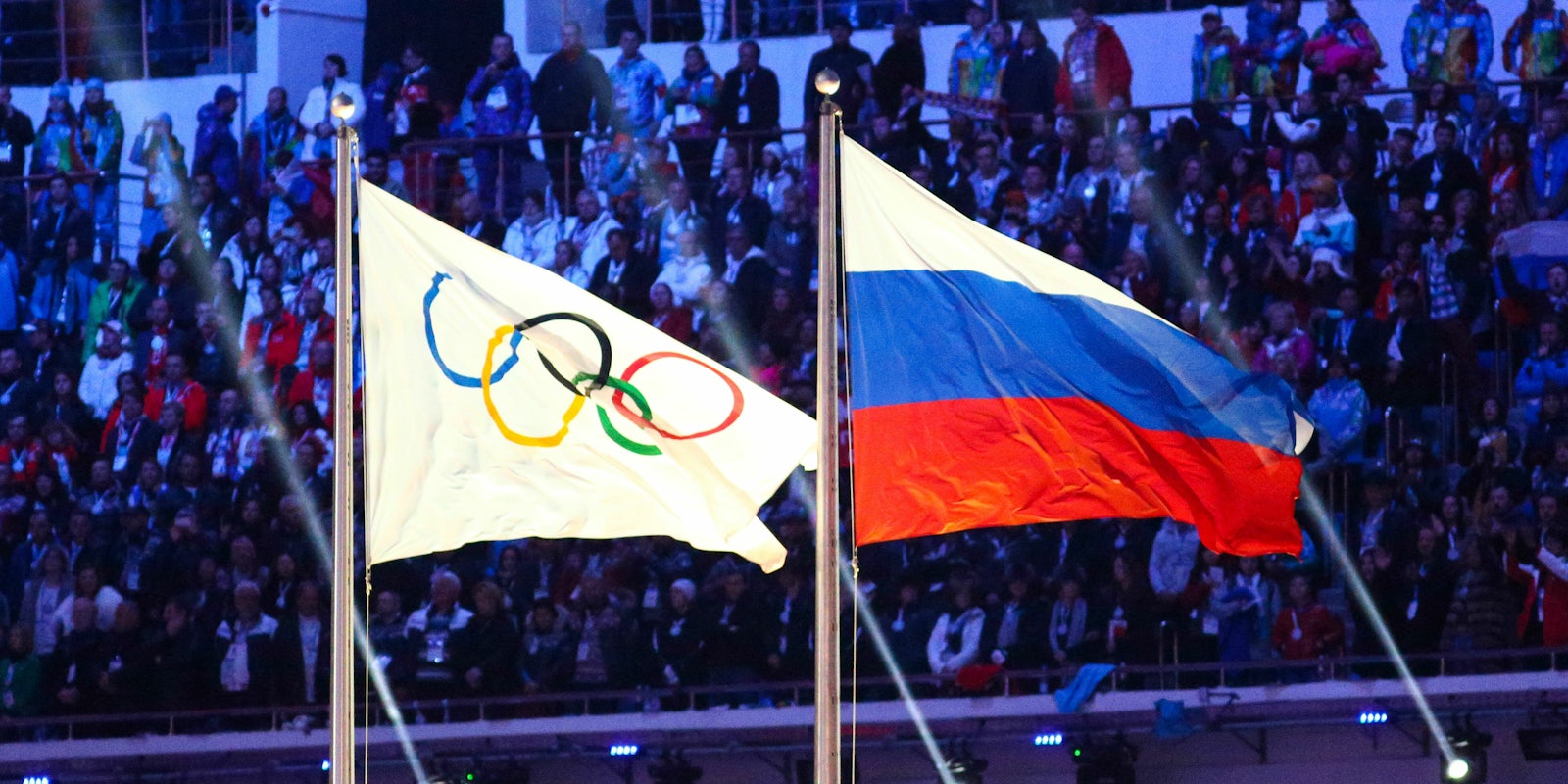The opening ceremony at the 2018 Winter Olympics was hit by a cyberattack that took down its official website, TV coverage, and Wi-Fi in the press center, officials confirm. Users were unable to access or print tickets for the event until the breach was normalized 12 hours later.
Pyeongchang Olympic spokesperson Sung Baik-you confirmed the breach in a statement to the Guardian but would not say if it was carried about by Russia, the lead suspect in the incident.
“There was a cyber-attack and the server was updated yesterday during the day and we have the cause of the problem,” he said. “They know what happened and this is a usual thing during the Olympic Games. We are not going to reveal the source. We are taking secure operations and, in line with best practice, we’re not going to comment on the issue because it is an issue that we are dealing with.”
Mark Adams, the International Olympic Committee’s head of communications, told the publication he doesn’t know who is behind the attack but will release a full report at a later date.
“We don’t reveal details in public because actually at the moment, we are making sure that our systems are secure, which they are, so discussing details is not helpful,” Adams said. “But we will have a full report and, I guess, it will be made public.”
Before the games, security researchers said they found indications that Russian hackers were planning attacks against Olympic committees in retaliation for banning the country. Russia’s foreign ministry denounced the allegations as an attack by Western media. “We know that Western media are planning pseudo-investigations on the theme of ‘Russian fingerprints’ in hacking attacks on information resources related to the hosting of the Winter Olympic Games in the Republic of Korea. Of course, no evidence will be presented to the world,” the ministry said in a statement.
In December, the International Olympic Committee banned Russia for systematic doping in the 2014 games, but it’s allowing 169 athletes to compete under a neutral Olympic flag and uniform. Russian government officials are barred from attending, and the country’s anthem will not be played. The athletes permitted to compete will undergo rigorous drug screenings.
These days, events of this scale are expected to face cyberattacks. The United States Department of Homeland Security released a statement to travelers heading to South Korea, warning them of “cyber activists” who take advantage of large crowds during high-profile events to steal personal information.
This isn’t the first time the Olympics have faced cybersecurity threats. Gerry Pennell, chief information officer for the London 2012 games, told Computer Weekly, “We were attacked every day.”
Update 3:18pm, Feb. 26: U.S. intelligence officials speaking anonymously to the Washington Post claim the hacks targeting the 2018 Olympics were carried out by Russian military spies. The officials claim the attacks compromised up to 300 Olympic-related computers and South Korean routers before launching new malware on the day of the opening ceremony. Russia then allegedly made it look like the attacks were carried out by North Korea by using false IP addresses.


